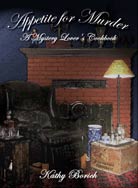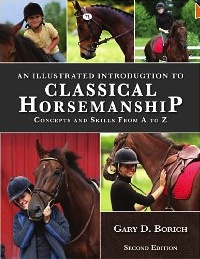Junebug: Blueberry Buckle Recipe
Year Released: 2005
Directed by: Phil Morrison
Starring: Amy Adams, Embeth Davidtz, Ben Mckenzie, Alessandro Nivola, Frank Hoyt Taylor, Celia Weston, Scott Wilson
(R, 107 min.)

"Happy families are all alike; every unhappy family is unhappy in its own way." Leo Tolstoy
Junebug is Crash removed from the slick, seedy streets of L.A. to the small town respectability of North Carolina. Except here the characters don’t really slam into each other’s lives; they mostly wallow in their self-imposed quagmires of isolation, rage, and illusion.
While Crash employed the trendy yet now too familiar technique of weaving together a set of lives united by a single climatic event, Junebug instead focuses on a single family and the ramifications of an impromptu visit from their semi-estranged son and his new bride, one that disrupts the delicate balance of their dysfunctional lives.
Perhaps it is the series of coarse, predictable, and generally pathetic films that have followed this same plotline that, by comparison, have somewhat inflated the reviews of Junebug. And in my case, there's relief that the portrayal of the South is not quite as patronizing, clichéd, and sneering as usual.
Madeleine operates her art gallery in Chicago, but she is a woman of the world whose rounded British vowels seem to add 15 points to her IQ in the same way a Southern accent achieves the opposite effect. Her latest find, in addition to her new husband George, whom she has swooped up almost as quickly as the “outsider art” she cultivates, is a North Carolina native with visionary depictions of Civil War battles. Since new hubby is from that part of the woods, why not combine a trip to sign up the artist with a visit to the new in-laws?
What she encounters is snarling indifference from George’s younger brother Johnny (but it’s not personal; he’s totally obnoxious to just about everyone), begrudging hospitality from mother-in-law Peg, shy acceptance from taciturn father-in-law Eugene, and finally all out idol worship from Johnny’s very pregnant wife, Ashely.
Amy Adams’ Ashley is certainly the center point of the film. It’s almost as if she feels she has to make up for the deep silences and sniping exchanges that surround her with a verbal barrage of good cheer and great expectations. When her baby shower is interrupted by angry growls emanating from the basement lair of surly husband Johnny, Ashley goes down to quiet him with a truism, “God loves you just the way you are,” but the part of her in touch with reality cannot help but add, “but he loves you too much to let you stay that way.” An ironic underpinning, one that is important but almost gets past the audience, is that Johnny’s anger is triggered because he cannot record a documentary that is about Ashely’s favorite creature, the meercat.
We also have a hint of Tennessee Williams here. Like Stella from A Streetcar Named Desire Ashely copes with a somewhat brutish mate. She also retreats into a world of illusion as does Laura from The Glass Menagerie, but Ashely’s favorite creature is not a crystal unicorn, but the afore mentioned meercat, a raccoon like creature that inhabits the Kalahari desert in southern Africa, perhaps in Ashely’s world, almost as exotic as the mythical unicorn.
One of the small things that makes Junebug memorable is the way stereotypes give way to real humanity and complexity. We are never quite sure what the filmmakers are trying to tell us, and in a world of manipulation and self-righteous moralizing, that in itself is refreshing although frustrating as well.
Madeleine’s prized “outsider art” consists of rendered Civil War battles where soldiers shoot rounds of ammunition from body appendages usually unnamed in polite company. In fact, General Lee’s ”firing rod” is so long it has to be continued on the back of the canvas. The artist, David, speaks in an Apocolyptic drawl inspired by a visiting angel; Madeleine’s in-laws describe him as that “retarded fellow.”
Madeleine declares that she loves the South, almost in a way some anthropologist might gush over finding a particularly primitive tribe in Borneo. But, as does “artist” David, we see an inner goodness that shines through, and in her own super sophisticated way, Madeleine is every bit as childlike and sincere as Ashely. And while most of us regular folk would not even consider these scrawling attempts to be art, I wonder here, who if anyone is the target of satire? Is it the southern religious mutant or the art gallery “sophisticates” who literally battle over the right to present him to the world?
Another memorable scene is the church potluck, where Madeleine sits in awe as husband George, at the request of the young preacher, reluctantly performs a gospel song that is as exquisite as any string quartet presented in polished drawing rooms. And said preacher is a perfectly fine specimen, a family man with a newborn son instead of the wild-eyed, gap-toothed caricature we have come to expect in such roles. Surprise! Surprise!
On the other hand, I wish there would have been a more solid explanation for brother Johnny’s paralyzing rage, a few more dynamics in the newlyweds’ relationship beyond the almost voyeuristic physical, and perhaps an attempt to provide at least some resolution at the closing. But alas, another trend has been spawned -- perhaps an overreaction to artificial happy endings and contrived coincidences. The filmmakers appear resolved to leave things unresolved.
—Kathy Borich
Film-Loving Foodie
Another unexpected surprise about Junebug is that the happiest scene occurs during the church potluck, where under the spell of George’s beautiful singing, everyone puts aside petty squabbles. Wife Madeleine looks aghast at first, and we fear she may not like her spouse’s gospel leanings, but the shock is really one of delighted surprise and finally proud approval. Glum mother-in-law Peg forgets her disapproving veneer and lets the tears of love and pride flow. Even petulant Johnny drops his scowl for a while as well.
Along with the music, there is a potluck, that wonderful assortment of everyone’s signature dish, brought in their best Tupperware, carefully wrapped in cellophane, or carried in a sporty straw basket. Help yourself to the Southern Fried Chicken, the Pea Salad, and don’t forget to have some Blueberry Buckle for dessert.
Blueberry Buckle
- 1/2 cup of shortening
- 1/2 cup of sugar
- 1 egg beaten
- 2 cups of flour, sifted
- 1/2 teaspoon of salt
- 2 1/2 teaspoon of baking powder
- 1/2 cup of milk
- 2 1/2 cups of fresh blueberries
Cream the shortening and sugar; add the beaten egg and mix well. Mix together and sift flour, salt and baking powder; add to creamed mixture alternately with milk. Spread dough in a greased 8x8x2 inch pan. Spread the blueberries over dough.
Mix and sift together 1/2 cup sugar, 1/2 cup flour, and 3/4 teaspoon cinnamon; cut in 1/3 cup of margarine or butter and a crumbly mixture results. Spread this mixture over the blueberries. Bake in a moderately hot oven, 375 degrees F for 1 to 1 1/4 hours. Serve warm from the oven.
Recipe Source: Carolina Country Cooking



 Rainy Day Rentals
Rainy Day Rentals
